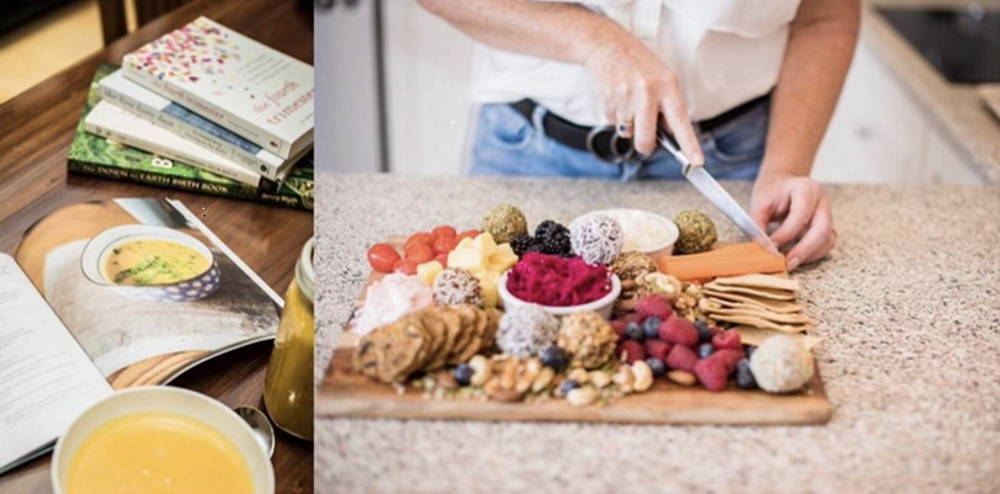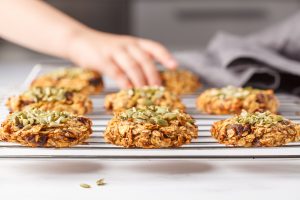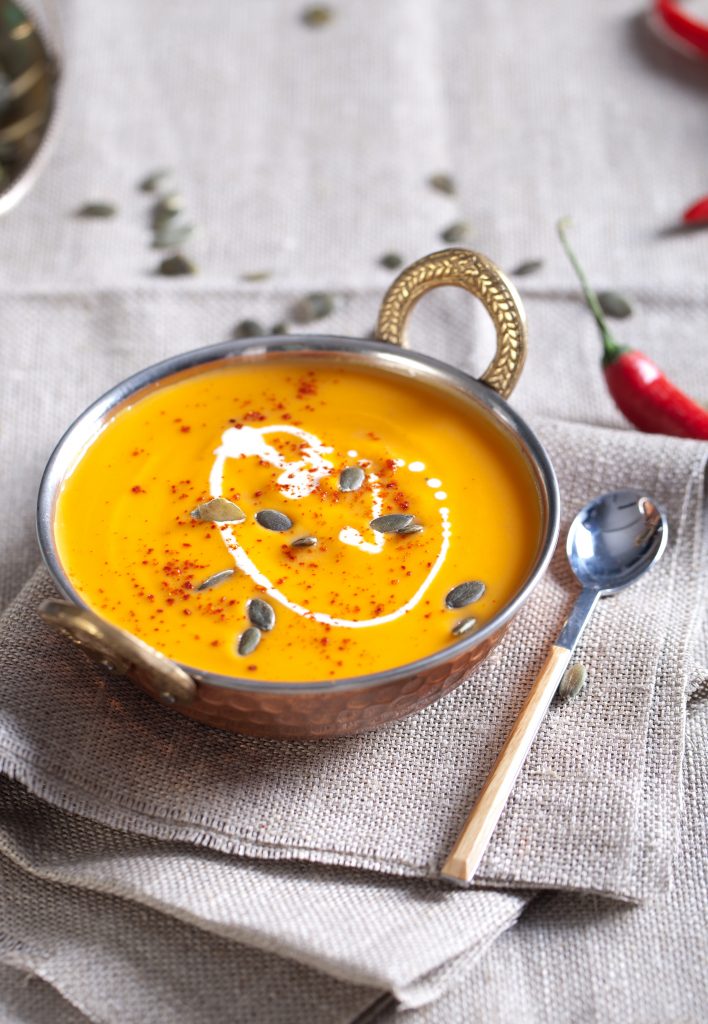Category: Recipes

The Benefits of Using Herbal Remedies in Pregnancy, Childbirth and Postpartum
Creating new life is the most natural thing in the world. That doesn’t mean it comes without challenges and difficulties. But it is my belief that many of the challenges, both physical and emotional, can be eased by the use of the natural herbs and remedies women all over the world have been using to heal and nourish their bodies for centuries.
That’s not to say there isn’t a role for the medical fraternity. Of course there is. But in the normal course of events, with a medically standard pregnancy and birth, herbal remedies provide a safe, effective solution to the normal stresses, strains and discomforts of pregnancy, birth, and the postpartum period.
Little Yarrow
Early on in my time as a Doula I recognised the importance of understanding the use of herbal remedies, not just as external concoctions and teas, but as central ingredients in creating healing and nourishing postpartum foods.
I searched for somewhere I could learn what benefit specific herbs could bring, and how to use them. This is when I came across Little Yarrow Herbal Medicine.
The Little Yarrow Apprenticeship is focussed on providing an understanding of the properties of a range of herbs and ingredients, and when and how to use them safely.
This incredible course has enriched my ability to provide my clients with the best possible care during their pregnancy, birth and postpartum period.
Uses for Herbal Medicine
Many of the ingredients we use in Herbal Medicine have multiple benefits, and by combining them in the right way, we can provide relief for a range of normal pregnancy ailments, taking into account five key goals:
- Enhancing nutrition during pregnancy and postpartum
- Strengthening the uterus both before and after birth
- Supporting the nervous system to alleviate stress, anxiety and exhaustion
- Easing minor ailments that are part and parcel of the changes occurring in your body
- Preparing for birth, and healing afterwards
Herbal Medicine can help in ensuring these goals are met.
Pregnancy
Some of the common ailments women experience in pregnancy, which can be alleviated by herbal remedies, are:
- Constipation
- Anxiety and stress
- Headaches
- Heartburn
- Insomnia
- Nausea
- Haemorrhoids and varicose veins
Birth
For some women birthing is quick, for others it’s a slow process. There is no right or wrong. Herbal remedies can help when a woman experiences:
- Nausea
- Stress and Anxiety
- Labour pains
Postpartum
Pregnancy and birth takes a toll on your body, and it is important not to put too much pressure on yourself to ‘get back to normal’. That said, you don’t need to suffer unnecessarily with aches and pains which can be soothed with simple, gentle treatment. Herbal remedies can help you during your postpartum period with:
- Healing tears and wounds of the perineum
- Aching muscles
- Increasing and enhancing milk supply
- Breast feeding issues like mastitis and cracked sore nipples
- Supporting uterine health by relieving heavy flow and cramping
- Supporting energy and mood
Herbal Remedies from a Doula
Since completing the Little Yarrow Herbal Medicine Apprenticeship I have developed a range of teas, soaks, meal and snack recipes which incorporate the remedies I learned about. These nourishing and healing recipes help my clients feel great and recover from the strain pregnancy, birth and the postpartum period puts on their bodies.
If you wish to use my services as a Postpartum Doula a range of food is included in the package. However, you can also purchase many of my products here. (link to shop page)
I prepare all my products, meals and snacks by hand in small batches.[1]
A Simple Recipe[2]
I would like to share with you a simple infusion recipe you can create yourself at home that will help boost your mood during both pregnancy and postpartum.
3tspn Lemon Balm
3tspn Passionflower
3tspn Chamomile
Brew as a strong tea, leaving for 15 minutes in hot water. Strain before drinking.
Whether you feel you would like to include the support of a Doula in your pregnancy, birth and postpartum experience, or you would just like to experience the benefits of some of my herbal remedies, I would love to chat. Please give me a call on 0422 258 771 or contact me here.
[1] I have a NSW Government Food Authority Food Safety First Certificate for food preparation.
[2] Whilst all these herbs are safe for use in pregnancy, it is always a good idea to check with your health care professional when trying something new.

Postpartum Nutrition & Nurturing – Why They’re So Important
One of my favourite responsibilities in my role as a doula is providing nutrition and nurturing to new mamas in the postpartum period. Helping them transition from woman to mother in a way that feeds their soul and strengthens their body. This is what led me to undertake the Milk & Seed Apprenticeship. I consider myself a bit of a food alchemist, for me alchemy is creating from individual ingredients something that, when combined in a certain way, makes something wonderful. Something far superior and energetically valuable.
What is the Postpartum Period?
Before we get into why nurturing and nutrition during this period is so important, let’s be clear about what the postpartum period is.
Most maternal health practitioners, whether they be doctors, midwives, or doulas, consider the postpartum period to be 6-8 weeks post-birth, although some argue it may be as long as 12 weeks.
This is the period of time it takes for most of the major organ systems of the body to largely return to their pre-pregnancy state. This includes the hormones, metabolism, the genitourinary organs, and the circulatory system.
That said, full recovery of a woman’s body can take 6-12 months, particularly the restoration of muscle and connective tissue.
Why Mama’s Need Nurturing and Nutrition
Over the past 100 years or so Western culture has created an expectation that a woman will give birth and go right back to business as usual. But carrying and birthing a baby, then learning to be a mother, is an enormous undertaking. Physically. Mentally. Emotionally. And culturally. As a mama we are now responsible for keeping a life other than our own safe, happy, and thriving until they are able to do so for themselves. That is no small undertaking.
But you cannot pour from an empty cup, so taking care of the mamas, ensuring they have the nutrition and nurturing they need to step into their new role is vitally important.
What is Milk & Seed?
Milk & Seed is all about using food as medicine. Their philosophy takes modern superfoods, combined with ancient, traditional healing foods and practices from around the globe, to help new mothers replenish their vital life force.
Their Apprenticeship taught me how to cook nutritious comfort food for mamas, using ingredients specifically chosen to address their postpartum needs, as well as the practice of healing rituals which have been used for centuries to nurture and restore.
The philosophy at Milk & Seed is simple – when women are well, the world is well.
Why I Did the Milk & Seed Apprenticeship
I am passionate about nurturing and supporting mamas during the postpartum period. Not only to help them become the best mama they can be, but also helping them recover their pre-pregnancy health and vitality.
The knowledge I gained through this course has helped me develop recipes for comforting food that is nutritionally designed to provide mamas with everything they need for:
- healing the body
- balancing the hormones
- increasing the quality and quantity of milk production
- returning energy and strength
Healing and nurturing rituals also provide an antidote to our rushed modern lifestyle, helping women to ease into the joy of motherhood with grace and love.
Recipe
I want to share with you a wonderfully indulgent recipe I learned at Milk & Seed, which is easy to make, keeps well in the fridge, and provides that comfort we all seek from time to time – chocolate – but in a healthy and nourishing way.
Chocolate Reishi Gheenache*
This decadent yet medicinal chocolate “gheenache” can be eaten with a spoon, used to frost cupcakes, cakes, or spread on toast as a healthier and incredibly nourishing version of Nutella. Any you can make it before baby comes, so it’s ready and waiting for you when you need it.
Ingredients:
2 cups ghee
1 cup cacao
½ cup maple syrup (or to taste)
1 tbsp reishi powder (optional)
1 tbsp cordyceps powder (optional)
1 tbsp shatavari powder (optional)
1 tsp cinnamon powder (optional)
½ tsp vanilla powder or 1 tsp vanilla extract (optional)
Instructions:
Gently melt the ghee until it is a golden liquid. Then sift in the cacao and remaining powders (if using) as well as the maple syrup and vanilla extract before mixing well. If there are lumps, you can blend with a stick blender until smooth. Pour into a 16 oz mason jar and refrigerate until set. To use as a frosting, let gheenache come to room temperature after it is set for a spreadable consistency, and let your cake or cupcakes cool before frosting.
This Gheenache is so good everyone in the house will want to try it – so don’t be afraid to double the recipe!
If you feel you, or someone you know, would like the support of an experienced and knowledgeable Doula who is qualified in providing nourishing and replenishing meals during the postpartum period, please give me a call for a chat on 0422 258 771, or contact me:
*Recipe courtesy of Milk & Seed
Postpartum Nutrition
Our third and final blog on Nutrition from Stacy Heckenberg BHSc Nut. Med. – for now at least! – is all about how to take care of your nutrition once baby is born. Good nutrition is important now not only to help you get back on your feet after pregnancy and birth, but to help combat the inevitable sleeplessness, and to make sure you are producing the quality and quantity of milk your baby needs to thrive.
Why Postpartum Nutrition is Important
The big day has come and gone and you are home with your beautify baby. On to the next part of the journey – parenthood! A lot of big decisions happen during this time, all while you are learning about this new little person, managing more changes to your body, and the new normal of your life.
Good nutrition will not only help ensure you have a good milk supply, but will aid in recovery and repair of your body, and help with fatigue and the moods that come with hormonal fluctuation.
Choosing to Feed
Choosing how you are going to feed your little bundle is deeply personal, yet everyone will have an opinion that they are happy to share with you! Whether you choose breast or bottle – FED is best. Some women struggle to breastfeed, others choose not to. As a nutritionist I am here to support either choice.
Breast milk has benefits to both mother and child, it’s easily digested, and less likely to cause tummy upset. But, some women may experience, pain, low supply, excess supply, or suffer mastitis. If you find yourself experiencing any of these issues, Alison can recommend a great lactation specialist who will help you.
What to Eat While Breastfeeding
If you decide to breast feed, but are finding your milk supply is low you might need to increase your sources of what we call lactogenic foods. These are foods, also known as galactagogues, which help your body produce more milk. Things to include are:
- Oats
- Flax
- Nuts
- Garlic
- Fennel
- Fenugreek
- Turmeric
- Ginger
There are also foods you should avoid as they may cause a drop in supply:
- Alcohol
- Sage
- Parsley
- Peppermint
- Vitex
Taking Care of Yourself
This is a busy time, and it is easy to get overwhelmed. Here are a few tips for managing to ensure you get the rest you need:
- Do your grocery shopping online so you don’t have to worry about struggling around the supermarket
- Ask for help with meals – a Doula will always bring you a meal, and will know exactly what you need nutritionally. If you have friends and family perhaps they can drop in the odd hot meal
- If you are making a meal, make double and freeze half for a day when you are tired or just too busy with baby
- Keep plenty of healthy snacks in the house – fresh fruit, cheeses and trail mix are great and easy to eat one handed while you feed baby!
- Often the evenings are unsettled times for babies. So if you have a slow cooker make use of it!
Recipes
Part of my job is to make meal plans that support all stages of conception, pregnancy and postpartum. So I thought I would share a couple of recipes that I love. There are also a couple from Alison that you might like. Check out the Recipes section of the blog to see the recipes.
I hope these suggestions help you make it through that special time in your life. For more ideas go the Healthy Eating Guideline for Pregnancy at www.eatforhealth.gov.au.
Yours in health,
Stacy
www.hillsdistrictnutritionist.com
I hope you enjoyed our Nutrition series. If you have any questions, or want to chat about any aspect of pregnancy, birth or postpartum, message me at:

Pumpkin and coconut soup
This soup is delicious as well as nutritious and will sustain you during that all important postpartum period! it is great to make a double batch of this to freeze for later. If you freeze in mug-sized portions it can make a great healthy and quick lunch – just defrost on the stove or in the microwave.
You will need:
2 tablespoons ghee
4 gloves garlic
chunk fresh ginger, peeled and finely chopped
600g chopped pumpkin
1 sweet potato chopped
4 cups chicken broth
1 cup coconut milk
pinch asafoetida or 1 teaspoon of turmeric
1 teaspoon Himalayan salt
Instructions
- Heat ghee in a large saucepan over medium heat, Gently fry garlic & ginger until soft
- Add pumpkin, potato, broth, coconut milk, turmeric & salt and gentle simmer until soft.
- Puree with a stick blender until creamy and serve

Pumpkin Cookies
These pumpkin cookies are perfect for breakfast or a snack and take under an hour to make and bake. I suggest making a double batch and storing some in the freezer.
You will need:
1.25 cups of oats (quick or rolled)
1.5 teaspoons ground flax seeds
2 teaspoons cinnamon
1 teaspoon nutmeg
.25 teaspoon sea salt
1.5 teaspoons baking soda
.5 cup pumpkin seeds
.5 cup sunflower seeds
1 cup pitted dates (chopped)
1 Egg (you can substitute a chia egg)
.75 cup pureed pumpkin
.25 cup honey
1 tablespoon coconut oil (melted)
1 carrot (grated)
Optional Additions – choc chips, walnuts
Instructions
- Preheat oven to 175C and line a baking sheet with baking paper
- Combine oats, flax seed, cinnamon, nutmeg, sea salt, baking powder, pumpkin seeds, sunflower seeds and chopped dates together in a bowl. Mix well to combine.
- Whisk egg in a separate mixing bowl. Add pumpkin, honey, coconut oil and grated carrot. Mix well to combine.
- Add dry ingredients to wet ingredients and mix well until a dough-like consistency forms.
- Form cookies with the dough and place on baking sheet. (Tip: use a lid from a large-mouthed mason jar as a mold)
Place in the oven and bake for 30-40 minutes depending on how crispy you like your cookies. Remove from oven and cool on a rack. Then enjoy!
